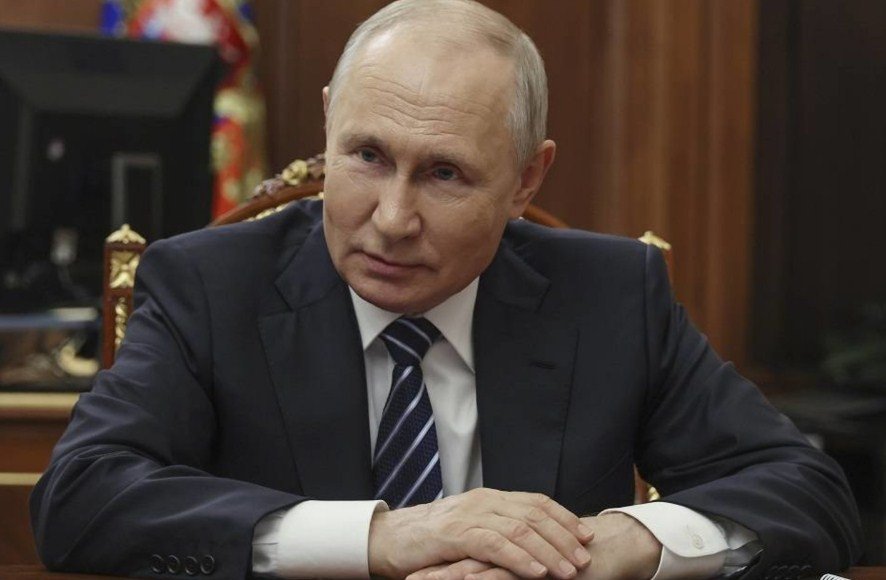The death of Yevgeny Prigozhin, a close ally of President Vladimir Putin and the alleged mastermind behind Russia’s Wagner mercenary group, has been shrouded in secrecy and controversy. Prigozhin was reportedly killed in a plane crash in the Democratic Republic of Congo on Feb. 28, 2023, but his funeral was only held on March 4 in Moscow, with no official confirmation or media coverage.
Prigozhin’s Mysterious Death and Funeral
Prigozhin, who was also known as “Putin’s chef” for his catering business that served the Kremlin, was one of the most influential and notorious figures in Russia’s political and military circles. He was accused of running the Wagner group, a private military company that operated in various conflict zones around the world, such as Syria, Libya, Sudan, and Central African Republic. He was also indicted by the U.S. for allegedly interfering in the 2016 presidential election through a troll farm called the Internet Research Agency.
According to some sources, Prigozhin was on board an Ilyushin Il-76 cargo plane that crashed near Goma airport in Congo, killing all 23 people on board. The plane was reportedly carrying weapons and ammunition for Wagner’s operations in Africa. However, other sources claimed that Prigozhin was not on the plane, but died in a separate incident in Libya, where Wagner was supporting the forces of Khalifa Haftar against the UN-backed government.
The Kremlin and security officials arranged for the funeral to take place with a minimal likelihood of public outcry or protest. The ceremony was held at a military cemetery in Moscow, with only a few dozen people attending, mostly from Prigozhin’s inner circle. No senior government officials or Wagner representatives were present. The funeral was not announced or reported by any state media outlets, and journalists who tried to cover it were harassed and detained by security forces.
Kremlin’s Motives for Hiding Prigozhin’s Death
The Kremlin’s silence and secrecy over Prigozhin’s death and funeral may have several motives. One possible reason is that the Kremlin wanted to avoid drawing attention to Prigozhin’s role in Russia’s foreign policy and military interventions, especially at a time when Russia is facing international pressure and criticism over its involvement in Ukraine. Prigozhin’s activities were often seen as a way for Putin to pursue his interests abroad without risking direct confrontation or accountability.
Another possible reason is that the Kremlin wanted to prevent any potential power struggle or instability within Prigozhin’s network of businesses and associates. Prigozhin had amassed a vast fortune and influence through his various ventures, ranging from catering and media to mining and security. He also had connections with many powerful figures in Russia and abroad, including oligarchs, politicians, warlords, and rebels. His death could create a vacuum or a conflict among his successors or rivals.
A third possible reason is that the Kremlin wanted to send a message to Prigozhin’s enemies or critics that he was still alive and powerful, even after his death. Prigozhin had many enemies both inside and outside Russia, who may have been behind his assassination or sabotage. By keeping his death secret and holding a low-key funeral, the Kremlin may have wanted to create an aura of mystery and fear around Prigozhin, making him seem like an immortal or ghostly figure who could still haunt or harm his foes.
Prigozhin’s Legacy and Impact on Russia
In death, Prigozhin stands to leave a lasting mark on Russia’s politics, economy, and society. He was one of the most prominent examples of how Putin’s system of patronage and corruption works in Russia, where loyalists are rewarded with lucrative contracts and opportunities, while critics are silenced or eliminated. He also showed how Russia uses hybrid warfare and proxy forces to advance its interests and influence around the world, often at the expense of human rights and international law.
Prigozhin’s death may also have implications for Russia’s ongoing conflict with Ukraine, where Wagner has been accused of participating in the invasion and occupation of Crimea and Donbas regions since 2014. Ukraine has recently launched a counter-offensive against Russian-backed separatists in eastern Ukraine, claiming significant territorial gains and inflicting heavy casualties on the enemy. Ukraine has also reported several drone attacks and shelling incidents from Russian territory, targeting its military positions and infrastructure.
Russia has denied any involvement in the drone attacks or the shelling, but has warned Ukraine of “serious consequences” if it continues its offensive. Russia has also massed thousands of troops and equipment along its border with Ukraine, raising fears of a full-scale war. The U.S. and its allies have expressed their support for Ukraine’s sovereignty and territorial integrity, and have urged Russia to de-escalate the situation.

